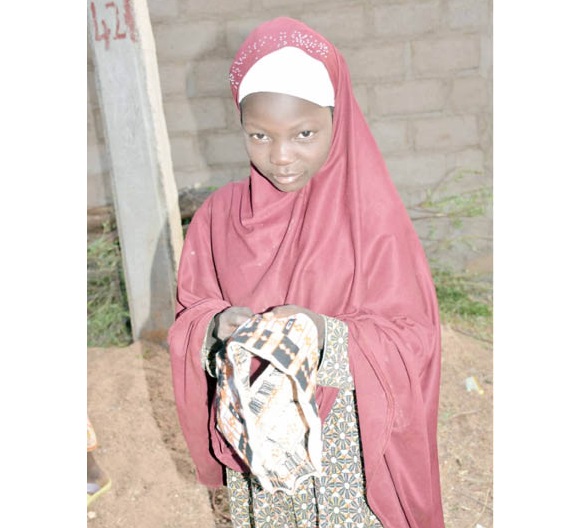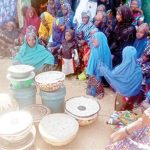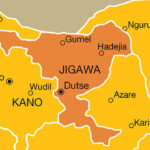For a first time visitor to Dutse, the Jigawa State capital, the sight of ladies, mostly in their teens, knitting men’s cap is a development that will certainly attract attention because of the obvious cultural contradiction.
The contradiction stems from the fact that the females are taking over what is considered as a man’s job, especially in the northern part of the country.
The caps are traditionally headdresses that men knit and wear in the area.
From all directions leading into the city centre, young ladies, especially those hawking petty goods, could be seen knitting caps.
Malam Ahmed Rufa’i, a resident of Dutse, said he could not remember when the occupation of cap-knitting started in the city as it had a long history in the town, adding that though the trade was known to be dominated by men, women had also joined the business long ago.
Citing his family as an example, Rufa’i explained that his elder brothers’ wives and their daughters were knitting caps and that was what they had been doing for a very long time.
He said apart from economic benefits and maintaining Hausa cultural dressing, cap-knitting had engaged the young ladies in meaningful activities without distraction.
An interesting part of the development is that some of them did not undergo any form of training for the art, but learnt by merely observing others doing it.
For instance, Umma’ani Shafi’u, 14, a resident of Limawa, one of the communities on the outskirts of the state capital, said she had spent about six years knitting the caps.
Umma’ani, who learnt the trade from her mother, combines cap-knitting with schooling. “We go to school in the morning and close by 2pm, and then Islamiyya lessons commence at 4pm and close by 6pm.”
On her part, Walida Hamisu Limawa, 16, said, “We grew up seeing people doing it in our area and it is one of the major sources of living for the people, especially the females.
“Every place has its own calling; cap-knitting appears to be the trade women engage in in this town. Some knit caps, some hawk them, and others engage in activities that would assist their parents in augmenting their little incomes.”
Aisha Muhammad from the same community said she acquired her skills while observing others do it.
She added that she did not see anything bad in females doing the cap-knitting business since it was the popular trade in the state capital.
Ummi Muhammad, 15, has an ambition of becoming a lawyer but for now she is into the cap-knitting business to keep body and soul together. She said she would only quit the trade when a better alternative presents itself.
She said, “I am schooling and I want to become a barrister. We make little money out of the business. In a month, I make an average of between N1500 and N2000. Sometimes one could only make a gain of N100 to N200 per cap because thread is very expensive now.”
Like any other trade, cap-knitting has also come up with some challenges, not just because of the high cost of threads, but also because of low patronage.
Aisha, a senior secondary school student, who is also into the business, wants the government to support them like it has been doing in the other sectors of the economy.
She said: “The thread has become very costly at the moment and, therefore, there is need for government’s intervention for the cap-knitting trade to continue to survive.”

 Join Daily Trust WhatsApp Community For Quick Access To News and Happenings Around You.
Join Daily Trust WhatsApp Community For Quick Access To News and Happenings Around You.


